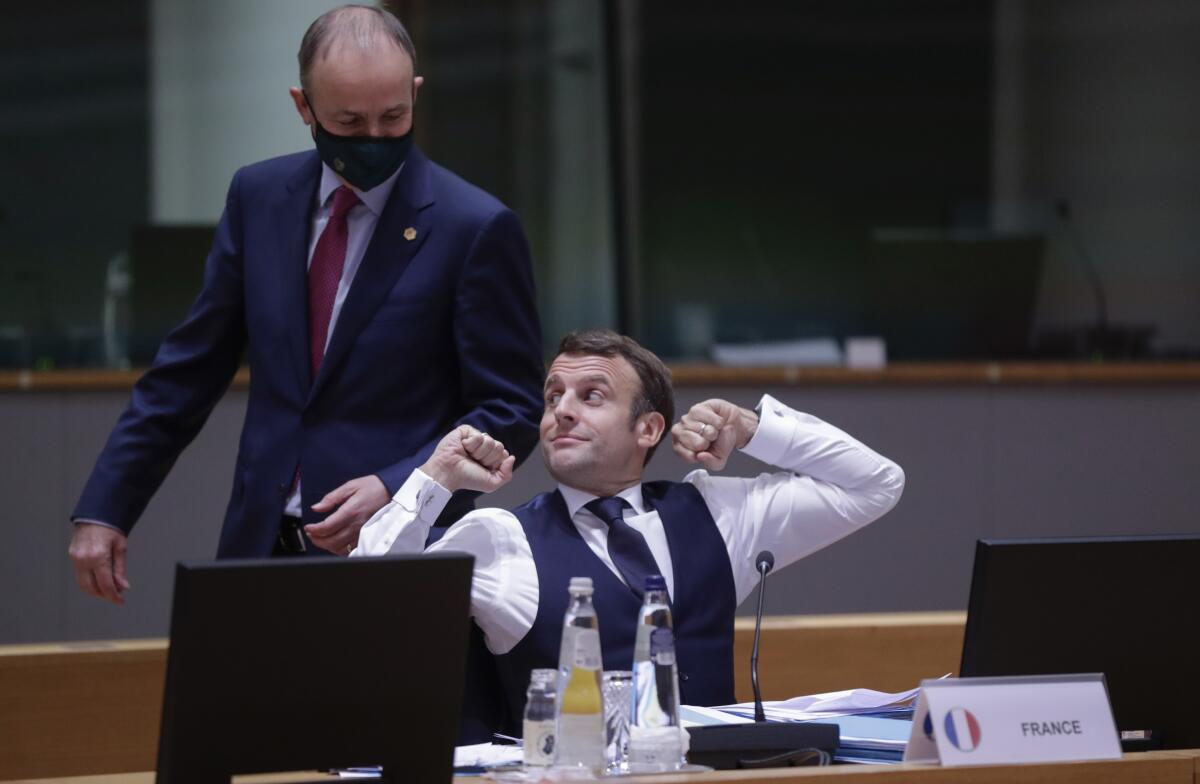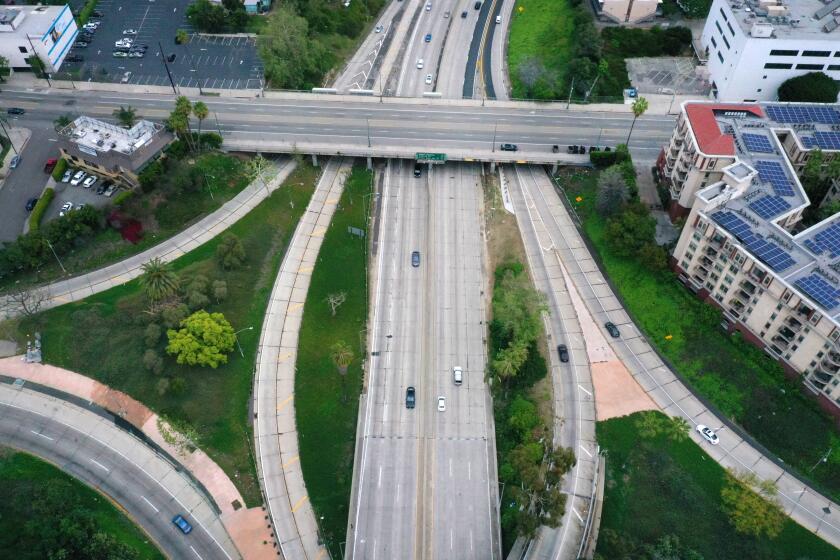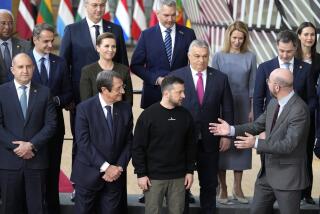EU leaders agree to reduce emissions after all-night talks

- Share via
BRUSSELS — European Union leaders reached a hard-fought deal Friday to cut the bloc’s greenhouse gas emissions by at least 55% by the end of the decade compared with 1990 levels, avoiding a hugely embarrassing deadlock ahead of a U.N. climate meeting this weekend.
Following all-night discussions at their two-day summit in Brussels, the 27 member states approved the EU executive commission’s proposal to toughen the bloc’s intermediate target on the way to climate neutrality by midcentury after a group of reluctant, coal-reliant countries finally agreed to support the improved goal.
“Europe is the leader in the fight against climate change,” tweeted EU Council president Charles Michel as daylight broke over the EU capital city. “We decided to cut our greenhouse gas emissions of at least 55% by 2030.”
Five years after the Paris agreement, the EU wants to be a leader in the fight against global warming. Yet the bloc’s heads of state and government were unable to agree on the new target the last time they met in October, mainly because of financial concerns by eastern nations seeking more clarity about how to fund and handle the green transition.
But the long-awaited deal on a massive long-term budget and coronavirus recovery clinched Thursday by EU leaders swung the momentum.
The reductions are probably a short-lived effect of stay-at-home orders and the resulting economic downturn, and are bound to vanish with a COVID vaccine.
Large swaths of the record-high 1.82 trillion-euro package are set to pour into programs and investments designed to help the member states, regions and sectors particularly affected by the green transition, which are in need of a deep economic and social transformation. EU leaders have agreed that 30% of the package should be used to support the transition.
Still, agreeing on common language was not an easy task. Negotiations were punctuated throughout the night by intense discussions in the plenary session and chats in smaller groups on the sidelines.
Another delay in revising the EU’s current 40% emission cuts objective for 2030 would have been particularly embarrassing before the virtual Climate Ambition Summit marking five years since the Paris deal, and leaders worked to the wire to seal a deal.
The event on Saturday will be co-hosted by the U.K. with the United Nations and France. British Prime Minister Boris Johnson announced last week he wants the U.K. to cut greenhouse gas emissions by at least 68% from 1990 levels by 2030 — a more ambitious goal than the EU’s.
Poland, which last year didn’t commit to the EU’s 2050 climate neutrality goal, and other eastern countries, including the Czech Republic and Hungary, largely depend on coal for their energy. They considered it unfair that all member states should be submitted to the same ambition without considering their respective energy mixes.
To win their approval, member states agreed that the new target should be delivered collectively. According to the Belgian prime minister’s office, “leaders agreed that the cuts will be first achieved in sectors and countries where there is still plenty of room for improvement.”
In addition, the European Commission will take into account specific national situations when drawing up the measures. A progress report will be submitted to the European Council in the spring.
World leaders agreed five years ago in Paris to keep the global warming increase to below 3.6 degrees Fahrenheit, and ideally no more than 2.7 degrees, by the end of the century. Under the Paris accord, countries are required to submit updated climate targets by the end of this year.
More to Read
Sign up for Essential California
The most important California stories and recommendations in your inbox every morning.
You may occasionally receive promotional content from the Los Angeles Times.











